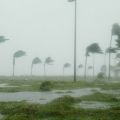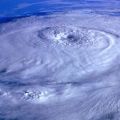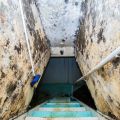6/28/2021
Stay Safe After a Hurricane or Other Tropical Storm

6/28/2021
Stay Safe After a Hurricane or Other Tropical Storm
After every hurricane or tropical storm passing by, they're a lot of hazards or dangerous situations everybody should do to keep safe. Here are a number of things you can do to make sure you and your property are away from harm.
Scenarios
Every after a hurricane or tropical storm, different scenarios happen :
- Destruction and damages of structures, landscaped areas
- Power outage and communication is down
- Low-lying areas are flooded
- Hazards are everywhere (flooded roads, damaged buildings, wild animals)
- Dangerous or wild animals are roaming around
- People are disorderly and unorganized (prone to crimes)
Primarily, continue monitoring the NOAA Weather Radio or the local news for the latest updates. Wait for confirmation if the hurricane has passed, and is safe to leave your house.
Emergency plan
Review your emergency plan. Read again your plan to refresh your mind from the aftermath. Stay focus, don’t panic, and do what the priorities at hand.
Power supply
- If there is no power, use flashlights not candles.
- If you use candles, keep them away from anything.
- If the main breaker is still plugged in, turn it off and wait for an electrician before using it again.
Inside house check-up
- Always be cautious when checking up on all the damages inside the house
- Never walk barefoot around the house
- Never touch or use any wet electrical device
- If your CO detector starts beeping, leave the premises immediately and call 911.
- Camp stoves, portable gasoline, or coal-burning equipment should never be used inside your home, basement, or garage. Always keep it outside (20 feet from any window, door, or vent)
- In an event of a fire, use a fire extinguisher if it needs to.
- Document the damages by taking photos or videos for insurance claims
- Make a list of items or things damaged or missing
- Check your gas lines for damages or broken lines. If found some stay away from the area and have it checked by the utility company.
Outside house check-up
- If the area outside is still flooded, stay out of floodwater
- If you need to be in or near floodwater, wear a life jacket (if the water is rising or strong)
- Always wash hands and part of the body immersed in floodwater with soap and water.
- Check up for gas leaks, loose power lines, and structural damages
- Be careful of after-storm hazards like sharp or broken objects, damaged tree structures, and contaminated floodwaters
Food and drink
- Eat and drink from a safe source (emergency supply)
- Discard food and water that may have contaminated with flood or stormwater.
- Throw away foods with an unusual odor, color, or texture. When in doubt, discard.
- Never use contaminated water to brush your teeth, wash and prepare food, washing hands, or dishes.
Injuries/Accidents
- Properly care for any injuries or wounds regardless small or big to prevent infection.
- Apply first aid quickly if any person got injured or accidents
If plan to evacuate/go to an evacuation center
- Stick to the emergency plan, deviate or improvise if necessary
- Monitor and keep updated on the news including flooded roads
- Don’t attempt to drive through a flooded area. Cars or other vehicles can be swept away or may stall in the moving waters.
- If you hear unusual or shifting noises in your house or building, leave and stay away from it. Strange noises mean a collapsing structure about to fall.
While traveling
- Stay away from damaged buildings
- Never enter a damaged or unstable building or structure. Wait for the authorities until they tell it is safe to go inside.
- Keep off from power lines
- Stay away from hanging overhead power lines
- Call and report fell power lines to the electric company
- Protect yourself from animals and pests
- Use insect repellent/bug spray with DEET/picaridin, if an animal threatens you.
- Keep off from wandering/lost/wild animals. Call and report to 911 or at the public health department
On evacuation center
- Don’t forget to bring along anti-COVID-19 protection items like hand sanitizers, cleaning materials, and well-fitted masks to avoid exposure and infection
- When talking to a person, neighbor or friends, never forget to socially distance yourself
- Wash hands more than often and avoid touching surfaces if necessary
- After finishing everything you need, ask the officials if it is safe to go back home
Cleaning up the house
- Clean up safely and cautiously
- Use protective clothes/equipment during the cleaning up process
- Always follow good personal hygiene/ hand washing to prevent the spread of disease and illnesses
- Use safe and clean running water in washing and cleaning hands.
Repairing the house
- Have an accurate recording of expenses, keep receipts and bills, and document any other expenses incurred (Do not make permanent repairs until the Claim professionals reviewed and approved)
- Make an inventory list of damaged items or things on your personal property which includes Item description, manufacturer name, brand name, age, and place/date of purchase.
- Wear protective clothing during repairs and if possible work with a buddy-system
- Protect and secure broken or damaged parts of the house to avoid being vandalized or burglarized. If the rooftops are broken or making leaks, install roof tarping to temporarily seal off your roofs.
- Do not forget to arrange or asks for discounts for the temporary repairs
- If you think your home is unsafe because of the storm damage, contact your insurance company immediately for temporary accommodations.
Personal/Emotional Health
- If you feel you need professional help to cope up with the situation, find an expert or a community counselor to recover from the disaster.
- Connect and communicate with family, friends, and others in your community
- Take care of yourself and your family members, and know when and how to seek help if necessary.
Florida’s Trusted Leader in Water Mold Cleanup & Restoration| Armstrong Water Mold Cleanup and Restoration
Since 2005, Armstrong Water Mold Cleanup and Restoration, Your One-Stop Service, has been helping residential and commercial businesses from disasters like hurricanes and tropical storms. We offer the best quality services, affordable prices, and guaranteed satisfaction.
- Licensed Certified General Contractor
- Complete Restorations (Water Damage/Mold Remediation/Fire Damage)
- State of Florida Residential Contractor’s License #L1607070001182
- Bonded and Insured
- 100% Workmanship Guaranteed
- Works with Insurance Companies
Armstrong Water Mold Cleanup and Restoration | Florida
- Disaster Restoration
- Water Mold Services
- Home Improvements
- Roof Traps for Residential and Commercial
Discover and learn more by calling Armstrong Water Mold Cleanup and Restoration at (239) 592-3777 or connecting with us online today.
Other articles and publications:
Protect and secure your property from hurricanes by having a roof tarping system.
Understanding the health and safety issues concerning floodwaters is crucial.
Read to discover more about the health risks of floods in Florida.
7/26/2021
Commercial businesses must take steps to protect their property during disasters to ensure that minimal damages will be incurred. Learn more.
7/26/2021
Learn about what to do after basement flooding. For SWFL water & mold cleanup, call Armstrong Water Mold Cleanup & Restorations at
(239) 531-2000.
5/28/2021
Read about the types and classes of water and how a professional restoration company can help.
5/28/2021
Armstrong Water Mold Cleanup & Restorations offers water damage restoration, repair & cleanup in Punta Gorda, Florida. Available 24/7 at (239) 531-2000.
7/26/2021





